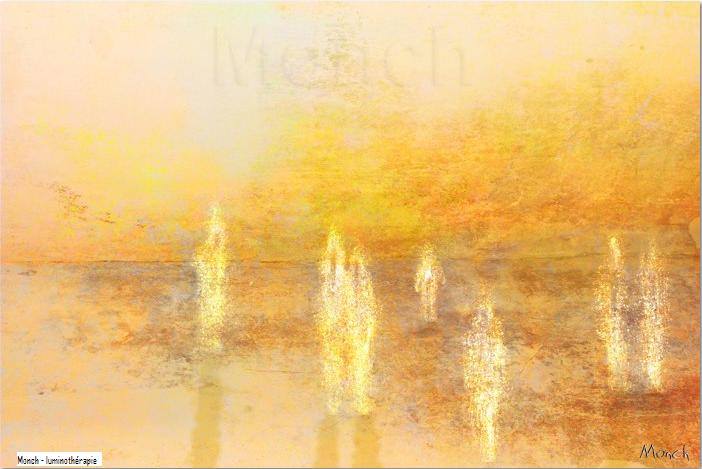Why Louche?

When describing a lexicographer, Samuel Johnson (1709-1784) opined that a writer of dictionaries was “a harmless drudge, that busies himself in tracing the original and detailing the signification of words”.
Oh, Mr. Johnson, despite your erudition, you must not have savoured many of the exquisite joys of etymology.
I love words — their precision, their histories, and how they enable one to express what otherwise would be ineffable.
I am inordinately fond of the word “louche”. Its modern English dictionary meaning is:
louche \louche\ adj.
of questionable taste, decency, or morality; disreputable or sordid in a rakish or appealing way: as, a louche nightclub; a louche painting.
First, a personal story.
A few summers ago, we had just finished a lovely backyard lunch with extended family. It was a splendid day — sunny, warm with a delicious breeze. The wild black raspberries that grow in my front ditch were abundant and ready for picking.
Earlier in the spring I had cut back the raspberry canes (meaning their thicker and thorny stems) to about the height of three feet. Admittedly I should have trimmed them back closer to the ground, but they are thicker there and harder to cut.
Somehow I lost my balance and fell eye-first into a raspberry cane, impaling my right eye. It’s a long story from here, but in essence I severed the muscle and the nerve that control eye movement. The result was partial blindness and severe double vision.
Like many precise and nuanced words, I found “louche” appealing; early in its etymological history, the word in Latin denoted “one-eyed”. In a physical sense, I became louche — how fitting!
In modern English use, if you describe a person, place, or thing as being louche, it indicates that they are unconventional and somewhat disreputable — but… in an attractive or rakish (another wonderful word) way.
Most word histories take the current word or usage and look backwards, but being something of an iconoclast, I prefer to approach it from the beginning and moving forward in time.
Think of a tree, with louche being a tiny uppermost branch in the canopy of words.
Louche began its life rooted in the Proto-Indo-European word “lewk”, which is the ancestor of all the following English words:
elucidate, illumination, illumine (a gorgeously precise word, meaning to enlighten spiritually and intellectually), lackluster, lang (as in the delightful Scots “lang may yer lum reek”, long may your chimney smoke), lea, learn, -leigh, leucine, leuc(k)o, light, limn, logi, louche, lucent, lucerne (alfalfa, not the Swiss city), lucid, Lucifer, lucubrate (a deliciously precise word meaning to study or write at night), lum (a chimney; see above), lumen, luminous, luna, lunar, lunatic, lune, luster, lustrum, lux, lynx, Nowruz (the first day of Spring), pellucid, translucent, and twilight
Lewk then branched off to the Proto-Italic word “lukskos”, where it began to take on the meaning of being “short-sighted”, both physically and figuratively.
Later the word entered Latin speech, the sturdy trunk of most European languages.
In Latin the word became “Luscus” (or “Lusca”) with a more precise meaning. The word was used to convey the state of being blind in one eye, seeing with one eye shut (as when aiming an arrow), or more generally having poor vision — physically and metaphorically. During its Latin use, the word continued to retain its footing rooted in light, but began drifting towards a “glimmer” and from there a quickly descended into connotations of gloominess.
From Latin, the word branched off into Old French, turning into “lousche” or “lois”. It was the French who added yet another layer of meaning to the word. They moved more in the direction of disrepute. From the original hint of gloominess, the word now meant shady, obscure, cloudy, dubious, and carried hints of ambiguity.
It is here that another use for the term was born. Now called the “Ouzo Effect”, louching is making something like ouzo or absinthe (how disreputable!) cloudy by mixing it with water. In fact, it is believed that certain anise-flavoured drinks developed their mystique precisely because of their exotic appearance during and after louching.
Ernest Hemingway, James Joyce, Lewis Carroll, Charles Baudelaire, Paul Verlaine, and Arthur Rimbaud were all famous drinkers of the cloudy and murkily appealing absinthe — a distinctly louche literary group!
Finally, we come to English. According to some dictionaries the term entered the English lexicon in 1819, although Google Ngrams shows its use as early as the 1700s (pace Johnson ).
Having their own homegrown words for sight impairment, English speakers retained just the figurative connotations. Perhaps with a nod to the sophistication and allure of all things French, the English added the sense of rakish appeal, denoting a modest return back into the light.
Shifting from pure light to a physical squint to an appealing moral squint, such a delightfully gnarly tree has borne the exquisite word “louche”.
Would you like to read other Posts? If so, please click the Home Page link below:

You, Dear Reader, are much needed and appreciated.
Everything written requires a reader to make it whole. The writer begins, then you, dear reader, take in the idea and its image, and so become the continuation of its breath. Please subscribe so that my words can breathe. Consider this my hand, reaching out to yours.
